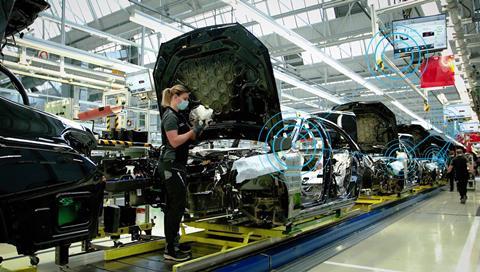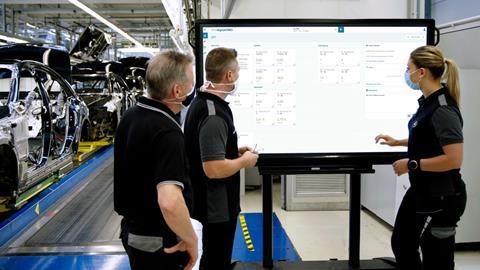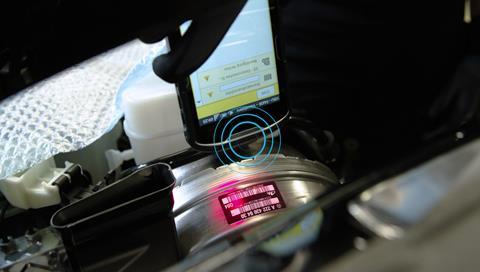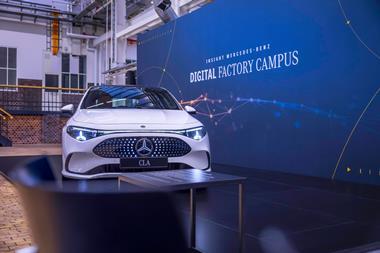The OEM says it will create a highly transparent and connected digital network across its global production network to deliver real-time data in support of manufacturing operations

Mercedes-Benz Cars Operations 360 (MO360) is a new digital ecosystem, which the company says is made up of a number of software applications which are connected via shared interfaces and standardised user interfaces. These applications use real-time data to support Mercedes’ global vehicle production operations with the networked plants supplying data which the MO360 applications can access. Other applications for the digital support of production staff are set to be integrated into MO360 successively. The digital ecosystem is being used in full for the first time at the new Factory 56 in Sindelfingen and this facility will act as a blueprint for all plants throughout the OEM’s production network.
“Thanks to improved processes, comprehensive data availability in our MO360 data lake and fast decisions based on real-time data, we will be able to increase production efficiency by more than 15% by 2022. We are ensuring the complete digital support of each member of the production staff,” says Jörg Burzer, member of the board of management of Mercedes-Benz responsible for Production and Supply Chain Management.
Through the different software applications MO360 integrates the information from the main production processes and IT systems of the more than 30 Mercedes passenger car plants and offers optimised KPI-based production control, and also makes individual, needs-based information and work instructions available to each employee in real-time. Communication compatibility is essential for this system to function effectively so to ensure this Mercedes says it is using Integra control software across all production operations, worldwide, and also in its cooperation with all suppliers and system partners. Cloud solutions deliver scalability and allow big-data processing.

Quality assurance and shopfloor management
Having access to all production data, the Quality Live quality management system, (part of MO360) provides press-button access to the live status of each individual vehicle. Mercedes says the system informs the quality management representatives and the workers proactively by smartphone or handheld about the current quality status in their area. As a subsystem of MO360, Quality Live also supports the structured problem-solving process as well as continuous process optimisation. It does this, when necessary, by making suggestions for efficient rework using AI methods.
The applications of the MO360 ecosystem are fully integrated both in terms of processes and data. For example, production data will flow automatically into digital Shopfloor Management (SFMdigital), so that those responsible are aware of the live status of production at any time. As well as workforce support the system will also provide related production target information. The Smart Maintenance application will provide plants with maintenance data allowing any potential equipment or system failures to be detected in early so repair or replacement can be undertaken in a convenient timeframe avoiding any production downtime. In future, the Auto SC application will also be used to optimise logistical processes both between and within plants.

Collaborative software engineering
Mercedes have had collaborating teams made up of IT and production experts working on the development of the MO360 digital ecosystem. A key element is DevOps; with this form of organisation integrated teams take on overall responsibility not only for development (Dev) of the software components, but also for their subsequent operations (Ops).
“A key success factor for MO360 lies in the fact that cross-functional teams of production and IT experts develop the ecosystem by agile and iterative collaboration. Organisational boundaries no longer have a role to play,” stresses Jan Brecht, CIO of Daimler and Mercedes-Benz. “All teams systematically utilise continuous feedback from production to optimise and enhance the digital tools. The teams continuously improve the software in short-cycle sprints with the aim of providing MO360 users with lasting perceptible benefits. In this way we are able to achieve regular software release cycles of just two weeks. For software engineering in the field of production, that is an absolute record,” explains Brecht.
The next steps in the development of the system are to network a complete factory with MO360 at one location and develop it as a test factory for the plants worldwide. Mercedes says it is also considering making parts of MO360 available to interested partners.






































No comments yet